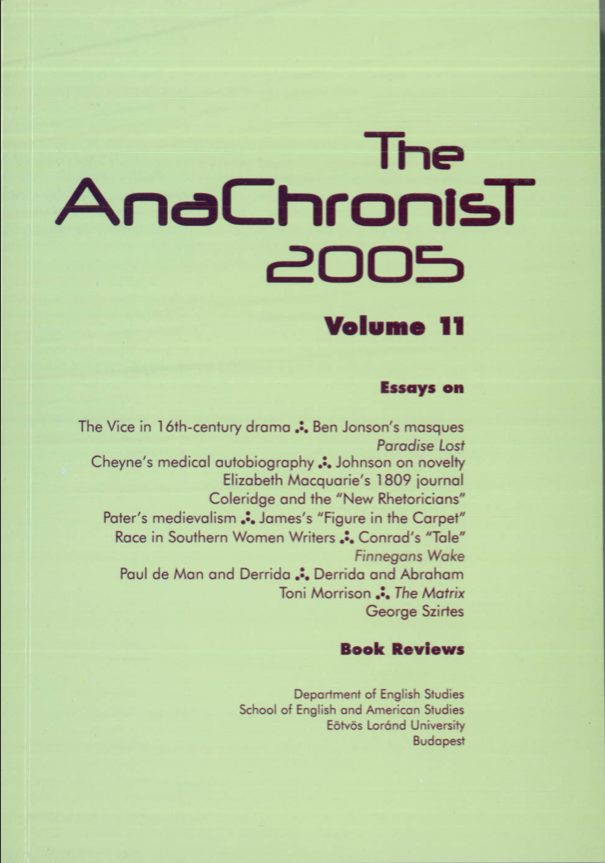'One Was a Woman, the Other a Man'
A Psychoanalytic Study of Sexual Identity in the Novels of Toni Morrison
DOI:
https://doi.org/10.53720/YPPQ1163Abstract
This paper explores the links between sexuality and subjectivity in Toni Morrison's The Bluest Eye, Sula, Song of Solomon, and Paradise. The theories of Jacques Lacan and Nancy Chodorow are employed to examine the anatomical and social / symbolic factors that lead Morrison's subjects to adopt a gendered self. Chodorow's argument that the mother's gender and preoedipal relationship with her child have a profound bearing on the child's gender identity and subsequent sense of self is cited in addressing gender formation and male-female relationships in Morrison's novels. Lacan's view of gender formation as positioning the gendered subject in a particular position in relation to language / the Symbolic system is also considered. Lacan's and Chodorow's concepts are applied in a study of a number of issues pertaining to sexuality and identity, including: homosexuality and 'deviant' sexuality as perceived threats to normative patriarchal gender systems in The Bluest Eye and Paradise; the discord apparent in male-female relationships in Morrison's novels; and the marginalisation of mothers and women as 'other.'

